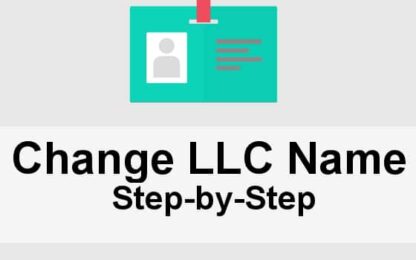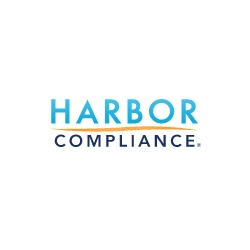What is a Domestic Limited Liability Company?
If you've taken the time to read this article, you're probably planning to start an LLC in the United States. And while the process of filing registration documents is not that complicated, you need to understand the classification of LLCs. You've probably seen such abbreviations as LLC, PLLC, DLLC, and want to figure out what they mean and how they differ from each other.
In fact, there are two main types of LLCs, and the major difference between them is where your business is based and operates. To understand which business entity you need to register, we suggest you continue reading our article, where we will describe everything in maximum detail.
What is a Domestic LLC: Its Difference from a Foreign LLC
First of all, we would like to point out that there are two main types of LLC:
- Domestic Limited Liability Company;
- Foreign Limited Liability Company.
These are not radically different types of structures, and they have many similarities. However, they differ in terms of where your business intends to work in the future after incorporation.
What does the term "domestic limited liability company" mean? If you register your company in one of the states of the country and plan to operate only there, then you need to register a domestic LLC. It's clear from the name that your business is operating "at home" meaning in the foundation state. But if your business is working out of the state, you need to get permission to do business in that area. Then, your firm turns out to be a foreign limited liability company.
So, we have two terms: "domestic LLC" meaning a company that operates in the state of foundation and "foreign LLC" referring to companies that do business in foreign states.
It all seems very simple, but there are many nuances. You probably already have a few questions. Will your company still be considered a domestic LLC when selling in other states? How can your company be considered a foreign LLC if you are a US citizen? Let's get into the details!
What is a Domestic Limited Liability Company: Terms and Conditions
Let's go into more detail about what a domestic LLC means and when your company will be considered one. It looks like if you register a domestic LLC, the door to other states of the country is closed to you. But in this case, you have a lot more freedom than it might seem at first glance.
If you are planning to open one or more offices or retail outlets in the state, you obviously don't need any permits to work or be physically present elsewhere.
But what if you want to open a sales outlet in a state of domestic LLC registration but sell your products nationwide through a website? Or maybe you provide services online such as consulting or training, and your customers are all over the country? Then, your LLC is still considered domestic until you decide to expand your physical presence to other states.
Once your company or one of its representatives physically crosses state borders to conduct or support business processes, then your firm is no longer a domestic LLC.
How to Register a Domestic LLC?
Regardless of whether you are planning to get a foreign qualification or not, you need to register a domestic LLC first. Now, we are going to tell you what steps you need to take to establish one. This process will not vary significantly from state to state.
Choosing a Company Name
The first thing you need to do before filing the incorporation documents is to choose a company name. You may think that this is the most trivial step, and there is nothing difficult about it. But you are mistaken because there are many criteria for choosing the name:
- Uniqueness. Two LLCs with the same name cannot exist in one state. Moreover, companies with similar names can't be registered in the same area either. For example, the names "Barbara Brand Shoes, ltd" and "Barbara Brand Shoes, LLC" can easily be confused with each other;
- Profanity or abusive language. Your name should not hurt the feelings of religious people, or minorities, or contain profanity;
- Suggestion of illegal activities. Your name cannot imply that your company conducts illegal activities in the state;
- No hint of connection to government agencies. You cannot indicate a connection to government agencies through your name because your company is private. For example, you are not allowed to specify "FBI" in the name of a domestic LLC;
- Specification of the business structure in the name. You are obligated to include the term "limited liability company" or any of its respective forms: LLC, ltd, LC, etc.
If any of these points are not met, the Secretary of State will reject your Articles of Organization.
Appointing a Registered Agent
A Resident Agent is a person or company that receives all business correspondence on behalf of your company. This is a prerequisite for doing business in the United States. You cannot ignore this point.
An agent can be any adult US citizen or company that provides such services. In fact, you can do this work for your company. But keep in mind that then, you will have to forego weekends, sick leaves, and vacations with family. That is all because you need to always be in touch during working hours 5 days a week. Also, you would have to sacrifice confidentiality and share private information in the public arena. This has many negative consequences.
We recommend using the registered agent services provided by domestic LLC formation companies. The assistance of an agent will cost you an average of $80 to $100, and you will be able to fully engage in the business processes, which cannot be delegated. Meanwhile, your agent will notify you about urgent emails and filter out spam.
Submitting Articles of Organization
The Articles of Organization is the most essential paper of any domestic limited liability company. It contains basic information about your business. You should file it with the Secretary of State along with a check confirming payment of state fees (the fees vary from state to state and range from $50 to $400).
Usually, it is required to add the following details to the Articles of Organization form:
- Company name;
- Names and information about company founders;
- Contacts of the registered agent;
- A physical address in the state for your domestic LLC.
The processing of the documents usually does not take long, but you can always take advantage of expedited processing. Of course, you will have to pay extra for this privilege.
If you don't want to do the paperwork yourself or are afraid of making a mistake, many LLC formation companies on the market are willing to help you get it done. Each of these companies offers different packages at different prices. By studying the offerings of the most popular ones, you will be able to choose the best one for you. Prices for their services can start at $0+state fees and go up to $400 or even $500.
Steps after Founding a Domestic LLC
Once you receive copies of your Articles of Organization, your company will be considered registered, and you can legally conduct business in the state. But before you can move on to sales and providing services, you'll need to do a few other important things:
- Draw up an Operating Agreement. This is an internal document of your company and does not need to be filed with the state. But we always advise domestic LLC owners to draw it up and give copies to the entire management team. In this document, you need to specify the rules under which your company will operate. You can put any information you think is important there;
- Get an EIN. If your company has more than one employee/founder, you should definitely get an EIN. With its help, in the future, you can get a loan from a bank for your company. Getting an EIN on the IRS website will not take you more than 5 minutes and is free;
- Open a bank account. To keep your corporate veil intact and protect your assets, we recommend opening a separate bank account for your domestic LLC. What's more, your accountant will have an easier time keeping records if you do this. Many experienced business people say that ignoring opening a separate bank account led to confusion of assets and was the biggest mistake they made when they first started their business;
- Get insurance. No one is immune to setbacks. Be sure to consult with an insurance agent to learn how you can best secure your company;
- Get your licenses. Contact your state representatives. They will definitely advise if you need licenses in order for your domestic LLC to operate legally in the state. If you do construction, medical, or legal work, you will definitely need a license or PLLC (professional limited liability company) formation.
Now you know what a domestic limited liability company is and how to register one. But also, don't forget to keep your company in compliance with state requirements. Timely payment of taxes, state fees, filing of annual reports (some states do not require filing annual reports), and other required steps will help your company stay compliant and in good standing at all times.
Domestic LLC VS Professional LLC
As we have already mentioned, some companies, whose activities are related to a higher level of risk, are required to obtain a license for their operations. This is the major difference between a domestic LLC and a professional LLC.
Professionals who are engaged in legal, medical, construction, educational, and other activities formalize a PLLC and obtain the appropriate permits for their work. In fact, they fill out the same list of documents, but the Articles of Organization form is more extended for them (because they specify additional information).
What is a Foreign LLC: Terms and Conditions
Usually, when we hear the word "foreign", we imagine something that is outside the country. But when it comes to registering an LLC in the United States, things are a little different.
Any company that is incorporated in another state will be considered a foreign LLC to the local authorities. Even if these states are neighbors and share the border.
This means that if you set up your company in Georgia, you will need to obtain additional permits (namely foreign qualifications) to open a retail store or office in Texas. In this case, the Georgia state government will consider your business to be a local company, but to the government of Texas and any other state, you are a representative of a foreign LLC. Therefore, they require you to have additional papers and permits to give you the right to do business in their territory.
Moreover, you also need foreign qualifications to hire employees for the company and hold business meetings or conferences in another state (other than the place where the LLC is registered).
In fact, there are no clear regulations from the government as to what qualifies as "doing business." Most likely, a single deal will not be considered as such.
These requirements on the part of the authorities are due to the desire for transparency and more control over the business in the region. This has a positive effect on the functioning of the country's entire business system. Thus, everything works like a Swiss watch and does not fail.
If you ignore state requirements and start doing business in another state without foreign qualifications, you face the risk of:
- Penalties (fine + payment of all taxes and fees as if you had registered everything fair and proper + interest for late payment);
- Ban on doing business in this state;
- Sanctions against the company;
- Sanctions against representatives or managers of the company.
As you can see, obtaining a foreign qualification is vital, or you will put a huge stain on the reputation of your business. Even if your sales are minimal or you have decided to simply test out whether your business will be successful in another state, we advise you not to engage in illegal activities and get your documents in order.
What Benefits Will Your Foreign LLC Get Once Qualified?
Once you are qualified abroad, you will be able to enjoy all the benefits of a legally registered LLC in the state. For example, if you have problems with suppliers, landlords, or other individuals, you will be able to file a lawsuit in a foreign state. You can also legally rent a shop/office space, enter into a contract, and so on.
How Can I Get a Foreign Qualification?
After you finish registering your domestic LLC in your home state, you may need to obtain a foreign qualification. Usually, this is needed to expand the company.
While the legal frameworks of different states often vary, they usually have a similar list of requirements when it comes to establishing LLCs. Most often, in order to obtain foreign qualifications for your domestic limited liability company, you will be asked to provide the following information:
- LLC name;
- Date of the company formation;
- The state in which the company filed its Articles of Organization;
- Address in the foreign state;
- Contacts of the registered agent in the foreign state;
- Check for payment of state registration fees.
This is a fairly brief list of details that you will need to specify in the forms. You will not have any trouble filling them out. Obtaining a foreign qualification is always easier and faster than founding an LLC from scratch.
The only problem you may have is choosing a company name. Suppose your domestic LLC is called "Barbara Brand Shoes, ltd", and in your home state, that name is assigned to you. But in one of the foreign states, that name may already be taken. Then, you can solve the problem by choosing a fictitious name for your LLC.
You are required to have foreign qualifications in each state where your company will conduct business. And you need to appoint a resident agent for each of them. Usually, large companies that offer LLC formation assistance and registered agent services have offices and representatives all over the country. Also, they often offer discounts if you need agents' assistance in more than one state. Consider using their services to make the foreign qualification process easier.
Once you register a foreign LLC, you will need to file annual reports, update data (if there are significant changes in your company), pay state fees, taxes, and maintain good business status in the state.
Conclusion
If your company does not plan to have a physical presence in foreign states, a DLLC or PLLC registration (depending on the company's activity) will be enough for you. What is a domestic LLC? It is a company that does business only in the state where it filed its Articles of Organization.
If you plan to expand to other states (open stores, offices, hire employees), then you will need to get a qualification. In simple words, this means obtaining permission to work in that state. It's much easier than starting a domestic limited liability company from scratch and won't take you very long. Meanwhile, you can enjoy all the privileges of an officially registered business.
In this article, we have described the steps you need to take in either case. We hope you are left with no questions, and we have helped you understand these aspects of LLC classification.





